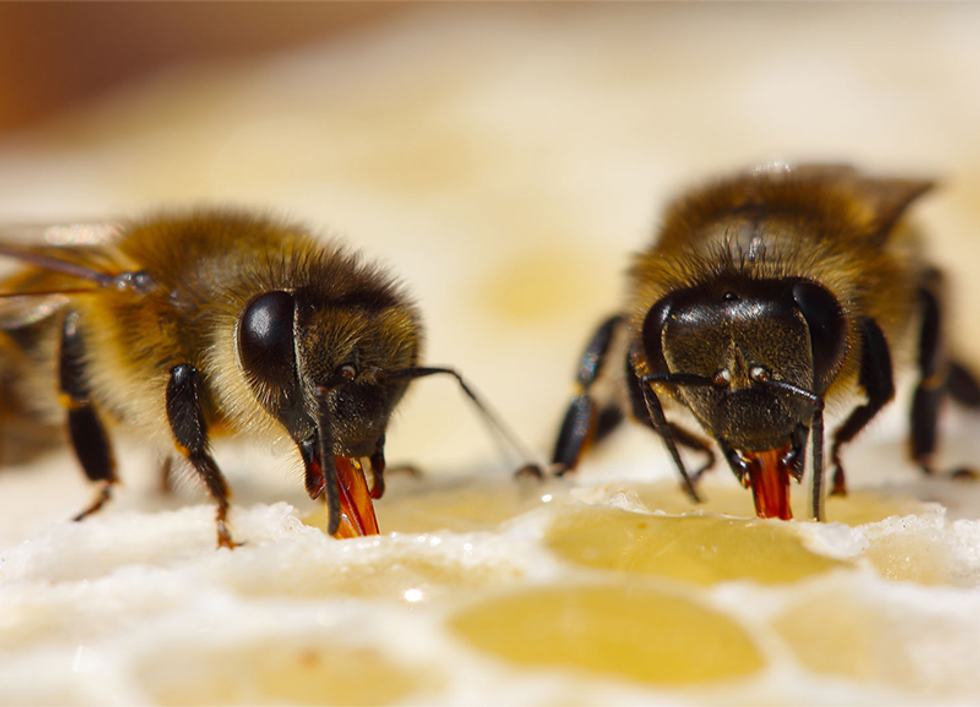Honeybees are the number one pollinators of crops compared to any other type of bee or pollinating insect in the world. They pollinate a whopping 80% of the world's plants, including 90 different crops. Some of the major crops they pollinate are almonds, blueberries, cherries and apples - literally some of the tastiest snacks in the world. In fact, almonds rely entirely on honeybees to pollinate them at bloom time.
But wait, there's more! Honeybees play a major role in pollinating cotton that makes up our clothes and blankets, keeping us warm and fashionable. They also pollinate clover and alfalfa, which are used as food for cattle who provide us with dairy and meat. While honeybees are busy covering themselves with pollen and slurping down nectar to make food for their babies, they are inadvertently providing food for other animals and humans.
A honeybee's goal is to gather nectar from flowers to make honey to feed their larvae. The flowers help the honeybees survive and thrive, and in return, honeybees spread more flowers. It is a perfect example of a symbiotic relationship in nature. In the honeybee's act of survival, they are beautifying the Earth by spreading flowers and sustaining wildlife - as well as helping humans and other animals live their best life by pollinating the crops we use everyday.
Take Action
There are a number of things you can do to support the honeybee population. Here are just a few:
- Plant a garden: Sunflowers, Purple Coneflower, Red Poppy, Aster-Crego, Forget Me Not – Cynoglossum, and Cornflower are some of the flowers that honeybees adore! Planting these will guarantee some eager pollinator visitors.
- Don't treat your plants with pesticides, insecticides, or herbicides! These are toxic for our little honeybee friends.
- Take a break from mowing your lawn to let dandelions and clovers bloom again – honeybees love those wildflowers! Letting your lawn go au naturel reminds them of their natural habitat – a meadow.
With Spring quickly approaching (Phil the groundhog didn't see his shadow this year!) make sure to help the honeybees feel welcome - they do a lot for us so they deserve the best!
Visit The Center for Honeybee Research Website for more information about how we can help our friends the honeybees!
















